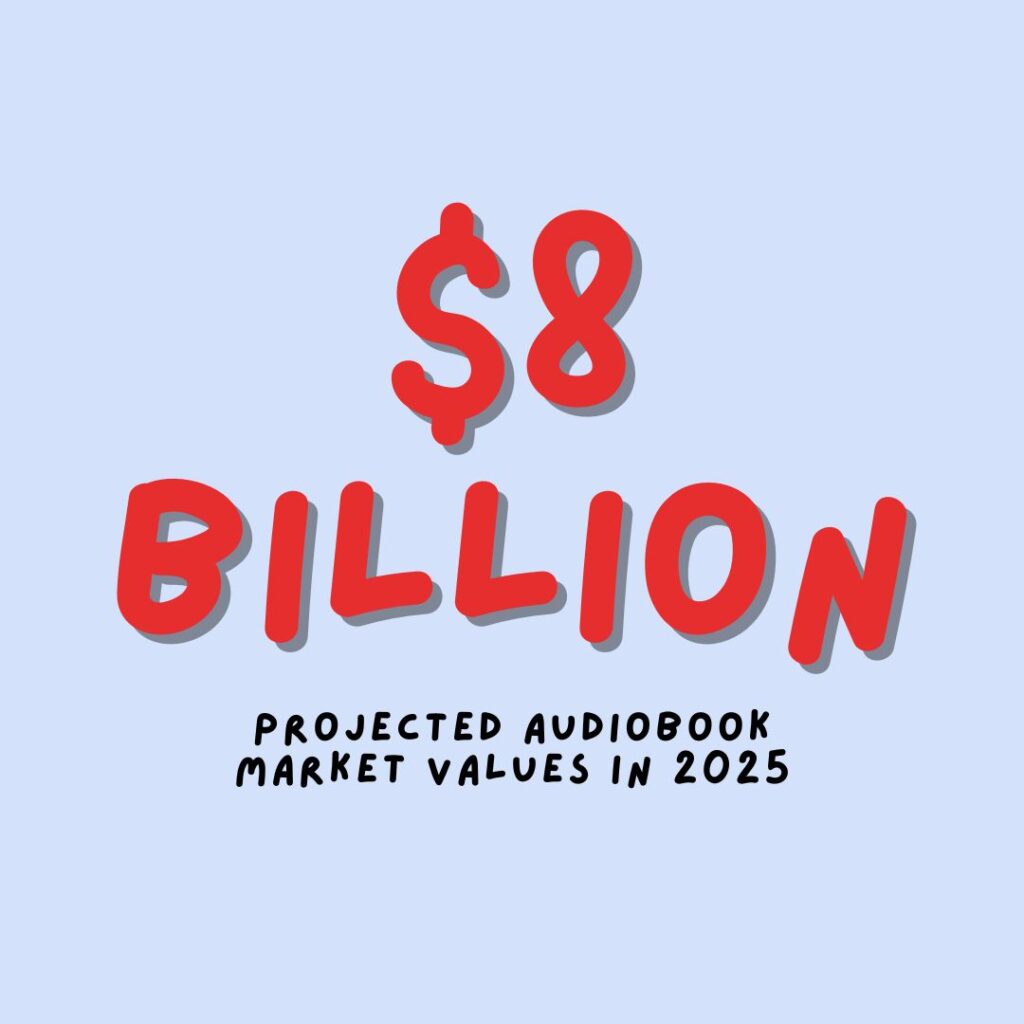Table of Contents
- Introduction
- A Growing Market: The Audiobook Industry at a Glance
- Technological Innovations Transforming Audiobooks
- Shifting Consumer Preferences
- Challenges Facing the Audiobook Market
- The Future of Key Industry Players
- Opportunities for Growth
- Conclusion
Introduction
The audiobook industry has experienced remarkable growth over the past decade, evolving into a multi-billion-dollar sector that caters to a diverse audience of readers, listeners, and learners. As we look toward 2025, the audiobook market is poised to reach new heights, fueled by technological advancements, changing consumer preferences, and the continuous expansion of content libraries. This article delves into the forces shaping the audiobook market in 2025, examining key trends, emerging challenges, and opportunities.
The increasing popularity of audiobooks can be attributed to their unparalleled convenience and accessibility. Whether it’s commuting, exercising, or unwinding at home, audiobooks allow individuals to enjoy stories and acquire knowledge hands-free and on the go. Furthermore, the rise of smart devices and voice-activated technology has made it easier than ever to integrate audiobooks into daily life. As these innovations continue to evolve, they are enhancing the listening experience and broadening the reach of audiobooks to new audiences worldwide.
A Growing Market: The Audiobook Industry at a Glance
The audiobook market has been one of the fastest-growing segments within the publishing and entertainment sectors. By 2023, it had surpassed a valuation of $6 billion globally, and analysts forecast this figure to exceed $8 billion by 2025. The growth trajectory is fueled by technological innovation, a growing appetite for audio content, and audiobooks’ ability to cater to busy, modern lifestyles.

This upward momentum stems from several factors:
- Consumer Convenience: Audiobooks provide a hands-free and screen-free way to consume books, appealing to commuters, multitaskers, and fitness enthusiasts alike.
- Technological Accessibility: Advances in apps, smart devices, and streaming platforms have made audiobooks accessible.
- Wider Genre Representation: An increasing number of publishers and independent creators are investing in audiobook production, ensuring that genres ranging from literary fiction to self-help and science fiction are well represented.
By 2025, audiobooks will no longer be viewed as a complement to traditional books but as a standalone format that engages listeners in unique and transformative ways.
Technological Innovations Transforming Audiobooks
Technology will play an instrumental role in reshaping the audiobook market by 2025, offering both exciting innovations and new challenges. Here’s how emerging technologies will impact the industry:
AI-Generated Narration
AI-driven voice technology is transforming audiobook production. By 2025, AI-narrated audiobooks will account for a growing market share, especially for non-fiction, instructional content, and niche titles where production costs have traditionally been prohibitive.
These AI narrators are becoming increasingly sophisticated, capable of adjusting tone, pacing, and even emotional nuance to suit the content. However, human narrators are expected to remain indispensable for works that require rich emotional depth, such as literary fiction, memoirs, and poetry. Consumers may also demand clear labeling of AI-narrated versus human-narrated books to maintain transparency.
Immersive Soundscapes
The audiobooks of 2025 will increasingly resemble cinematic experiences. Innovations like spatial audio, dynamic sound effects, and adaptive background music will create deeply immersive listening experiences. For example, an audiobook thriller might use soundscapes like creaking doors and footsteps to heighten suspense and make listeners feel part of the story.
This trend toward more interactive and immersive storytelling could blur the line between audiobooks and audio drama, offering a hybrid format that appeals to new demographics.
Integration with Smart Devices
By 2025, audiobooks will be more seamlessly integrated into everyday life through smart devices. Smart speakers (e.g., Alexa, Google Home), wearable technology, and in-car entertainment systems will enable listeners to access audiobooks effortlessly.
Listeners can switch between devices, sync progress across platforms, and receive AI-generated recommendations tailored to their tastes. This deeper integration will also allow audiobook consumption during daily routines, such as cooking, exercising, or commuting.
Shifting Consumer Preferences
Audiobook consumers are evolving, and their preferences will shape market trends in 2025. Here are the key drivers of consumer behavior in the coming years:
Younger Generations Leading the Way
Millennials and Gen Z embrace audiobooks as a primary form of storytelling and education. Unlike older generations, who may view audiobooks as a substitute for reading, younger consumers see them as an entirely different experience—one that complements podcasts, music streaming, and social media.
Platforms like TikTok have already boosted interest in certain audiobook genres, particularly YA fiction and fantasy. By 2025, these younger demographics will dominate the audiobook market, influencing content trends and marketing strategies.
Demand for Bite-Sized Content
With increasingly busy lifestyles, many listeners are gravitating toward short-form audiobooks or serialized stories that can be consumed in small increments. By 2025, micro-audiobooks lasting 10–15 minutes or serialized fiction with weekly episodes will likely grow in popularity.
This trend not only caters to multitaskers but also creates opportunities for experimentation with new formats, such as daily news digests, motivational snippets, or even audio-guided meditations.
Language Expansion and Global Reach
As more content is translated into multiple languages, the audiobook market will become increasingly global. By 2025, publishers are expected to ramp up investments in regional languages, particularly in emerging markets across Asia, Africa, and South America.
Localization will also include culturally relevant adaptations, ensuring that stories resonate with audiences in diverse regions. This expansion represents a significant growth opportunity for publishers and platform providers alike.
Challenges Facing the Audiobook Market
While the audiobook industry holds tremendous potential, it also faces challenges that must be addressed to sustain its growth. These include:
Royalties and Fair Compensation
Subscription services like Audible and Spotify have popularized audiobooks but also raised concerns about reduced royalties for authors and narrators. By 2025, industry stakeholders will likely face increasing pressure to establish fairer revenue-sharing models.
Transparent royalty structures will be essential to maintaining trust between creators, publishers, and distribution platforms, ensuring that audiobook production remains sustainable.
Piracy and Digital Theft
As with any digital medium, audiobooks are vulnerable to piracy. Unauthorized file sharing not only impacts revenues but also undermines the value of legitimate content. To combat this, publishers may adopt advanced encryption technologies and blockchain-based systems for rights management by 2025.
Balancing Automation and Human Craftsmanship
The rise of AI narration brings cost-saving advantages but raises questions about the future of human narrators. The challenge will be to find the right balance between embracing automation and preserving the artistry of human storytelling. Publishers may need to clarify the distinction between AI and human narration to cater to listener preferences.
The Future of Key Industry Players
By 2025, the audiobook market will be shaped by an increasingly competitive landscape, with major players and independent creators carving out their niches.
Subscription Platforms Dominating the Market
Platforms like Audible and Spotify will remain dominant, but competition will intensify as newer entrants offer unique features such as exclusive content, interactive storytelling, and AI-enhanced personalization.
Subscription models will likely diversify, with tiered pricing that caters to casual listeners and audiophiles alike.
Independent Creators on the Rise
Self-publishing is booming, thanks to platforms like Findaway Voices and Draft2Digital, which make it easier for independent authors to produce and distribute audiobooks. By 2025, indie creators will account for a growing share of audiobook releases, providing listeners with fresh, diverse voices outside the mainstream.
Media Collaborations and Crossovers
The lines between audiobooks, films, and games will continue to blur. Partnerships between publishers, film studios, and game developers will lead to multimedia storytelling experiences, such as tie-in audiobooks for popular franchises or interactive audiobooks with branching narratives.
Opportunities for Growth
Looking ahead, several untapped opportunities could propel the audiobook market forward:
- Corporate and Educational Use: Businesses and educational institutions are increasingly using audiobooks for training, development, and e-learning. By 2025, this market segment will likely expand, particularly with the rise of AI-powered learning tools.
- Sustainability Appeal: Digital audiobooks have a lower environmental impact than print books, a fact that could resonate with eco-conscious consumers.
- Personalized Experiences: Advances in AI will enable platforms to offer hyper-personalized recommendations, mood-based playlists, and even interactive storytelling formats that adapt to listener input.
Conclusion
As we approach 2025, the audiobook market is set to thrive, fueled by technological innovation, global expansion, and evolving consumer behaviors. While challenges like fair compensation and piracy require attention, the opportunities far outweigh the obstacles.
The future of audiobooks is no longer just about listening to books—it’s about reimagining storytelling for a new generation of listeners. Whether through immersive audio, AI-powered personalization, or diverse content offerings, audiobooks are transforming how we experience stories. The next chapter of the audiobook market promises to be nothing short of revolutionary.

4 thoughts on “The Audiobook Market in 2025”